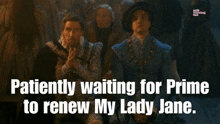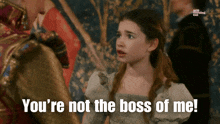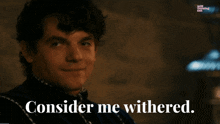Symbolism & Satire in "My Lady Jane"
How one alternate history reminds us we all belong

Welcome to From the Teacher’s Desk, where we take turns further reflecting on our episodes and applications to the classroom.
So we might be living in the Golden Age of Television - but that doesn’t mean our darlings don’t end up on the chopping block sometimes. Words cannot express how sad I am that My Lady Jane won’t be back for another season on Amazon Prime.
Which means I’ll just have to immortalize it here on Lit Think :)
The Background
In case you’re a Tudor Dynasty newb like me, My Lady Jane covers an alternate history surrounding Lady Jane Grey. Sure, England’s first long-standing female royal was Queen Elizabeth I, but Jane Grey managed (in real history) to be ruler of England for a whole nine days. Then she was beheaded.
No, I can’t make something like this up! Want to learn more? Check out this episode from one of my favorite podcasts, You’re Dead to Me.
Both iterations of the My Lady Jane play with the question of how England might have been different if Jane had remained queen for a bit longer. Oh, and there are magical people who can turn into animals…but otherwise it’s completely historically factual :)
The Ethians
I will admit, I enjoyed the TV show so much that I’ve read the first book in the My Lady Jane series. And while this might be a time when the TV show is actually better than the book, both texts have one theme in common.
We as humans fear the unknown.
This is why I loved teaching the etymology of the word “monster” when I used to read Beowulf with students (literally means “to warn”). Texts like these remind us the concept of heroism is subjective and influenced most by the narrator of the stories we retain.
Through the Ethians (who are born this way and can often code-switch to fit into Verity culture without detection), creators of My Lady Jane remind us all it’s far too easy to aggrandize the evil of someone we don’t understand. The Ethians of My Lady Jane could be your queer friends, a biracial coworker straddling two identities, or even someone experiencing a terrible personal crisis but who still puts on a smile every day through their pain.
Put simply, it takes work to practice empathy.
And lit-thinking media like this show are a great exercise of our empathy muscle.
The Verities
I also appreciated how the Verities were fleshed out in the TV show more than the books.
Mary was delightfully hypocritical with her lust for power and abuse of her family members. Lord Dudley was less a conniving second-in-command and more a caring father looking out for his Ethian son’s secret. And even Jane’s literate nature in the book was softened to show someone more vocal about social justice and ethical change in Tudor England.
In short, the TV show emphasizes the satire of Jane Grey’s world when juxtaposed with ours. My Lady Jane does such a great job of reminding us that the extreme political atmosphere of 21st-century America isn’t new - and we can survive it too.
What I’m Loving Right Now
I’m late to the game, but I’m currently reading Yellowface, by R.F. Kuang. It’s the kind of book I can’t stop thinking about when I’m not reading and one I keep finding small corners to read a little more.
The book does a great job of critiquing the 21st-century publishing system and our imperfect culture of books. I know Sarah has said it before, but it’s especially an interesting text to read as a creative myself. I highly recommend for anyone who’s looking for an easy read that will also activate your brain!
Please “like” by clicking on the ❤ and share this post with your friends, colleagues, and fellow lit thinkers.






I love the Janies series so much! I always pair a new Jane book with a more historical book so I know what's true and what's not, lol. I haven't seen the TV show - maybe I won't in order to not be sad about its cancellation.